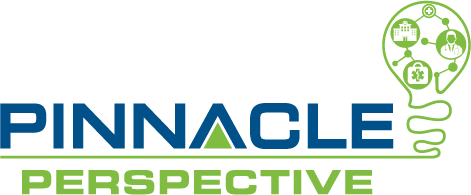
The Centers for Medicare and Medicaid Services finalized changes to the 2024 Physician Fee Schedule – Medicare Shared Savings Program on November 2, 2023. The changes in the final rule aim to advance CMS’ value-based care strategy. Here are some of the major highlights of the changes:
- Quality Measure Collection Types. CMS established a new collection type for ACOs called the Medicare Clinical Quality Measure (CQM) starting January 1, 2025. This addresses the concerns ACOs had with Electronic Clinical Quality Measures (eCQMs), which would have required ACOs to submit quality measures on ALL populations, not just Medicare, and to adopt the digital measurement of quality measures.
- Financial Benchmarking Methodology Modifications.
- Cap Regional Service Area Risk Score Growth: A new calculation method for the three-way blended benchmark update factor is being adopted, capping the prospective risk score growth in an ACO’s regional service area. This cap aims to improve accuracy and symmetry between an ACO’s beneficiary population and its regional risk score growth, discouraging coding intensity and incentivizing ACOs to care for higher-risk beneficiaries.
- Updating Benchmark Risk Adjustment: To maintain consistency and accuracy, a new policy is being implemented. It applies the same CMS-HCC risk adjustment model used in the performance year for all benchmark years, starting from January 1, 2024. The transition will occur over three years, aligning with the updated 2024 CMS-HCC risk adjustment model. It aims to address negative impacts on ACOs caused by using different risk adjustment models for benchmark and performance years.
- Eliminating Negative Regional Adjustments on the Benchmark: Policy changes aim to remove negative regional adjustments to further support ACOs serving medically complex, high-cost populations. This move is designed to encourage these ACOs to join or continue their participation in the Shared Savings Program by eliminating the impact of negative regional adjustments that would have affected them.
- Beneficiary Assignment Methodology Additions. The beneficiary assignment methodology is modified to add a “third step” which better accounts for nurse practitioners, physician assistants, and clinical nurse specialists, and “primary care services” definition is updated. This change involves an expanded 24-month assignment window to identify additional beneficiaries for assignment. By including an expanded window for assignment, more individuals, particularly from underserved communities who receive primary care from diverse practitioner types, will be recognized and considered for assignment to ACOs.
- Advance Investment Payments (AIP) Modifications. These modifications aim to better support ACOs transitioning to performance-based risk. ACOs ready to progress to higher-risk models within the BASIC track’s glide path in their third performance year will receive assistance. Additionally, ACOs receiving AIP can now early renew their participation agreement after the second performance year without facing full recoupment of advance investment payments. Reporting requirements have been intensified, mandating ACOs to share spend plan updates and actual spend information both with CMS and publicly. Adjustments to AIP termination policies ensure immediate payment cessation if an ACO voluntarily exits the Shared Savings Program. ACOs benefiting from AIP can now seek reconsideration review for all quarterly payment calculations. These policy adjustments will take effect from January 1, 2024, onwards.
Let us help you navigate the ever-changing ACO policies. For more information, please contact:
- Kelly Conroy at 561-385-7566 or KConroy@AskPHC.com, or
- Daniela Yusufbekova at 561-445-8303 or DYusufbekova@AskPHC.com.
Additional Resources:
- https://www.cms.gov/newsroom/fact-sheets/calendar-year-cy-2024-medicare-physician-fee-schedule-final-rule-medicare-shared-savings-program
- https://www.cms.gov/files/document/mssp-fact-sheet-cy-2023-pfs-final-rule.pdf

